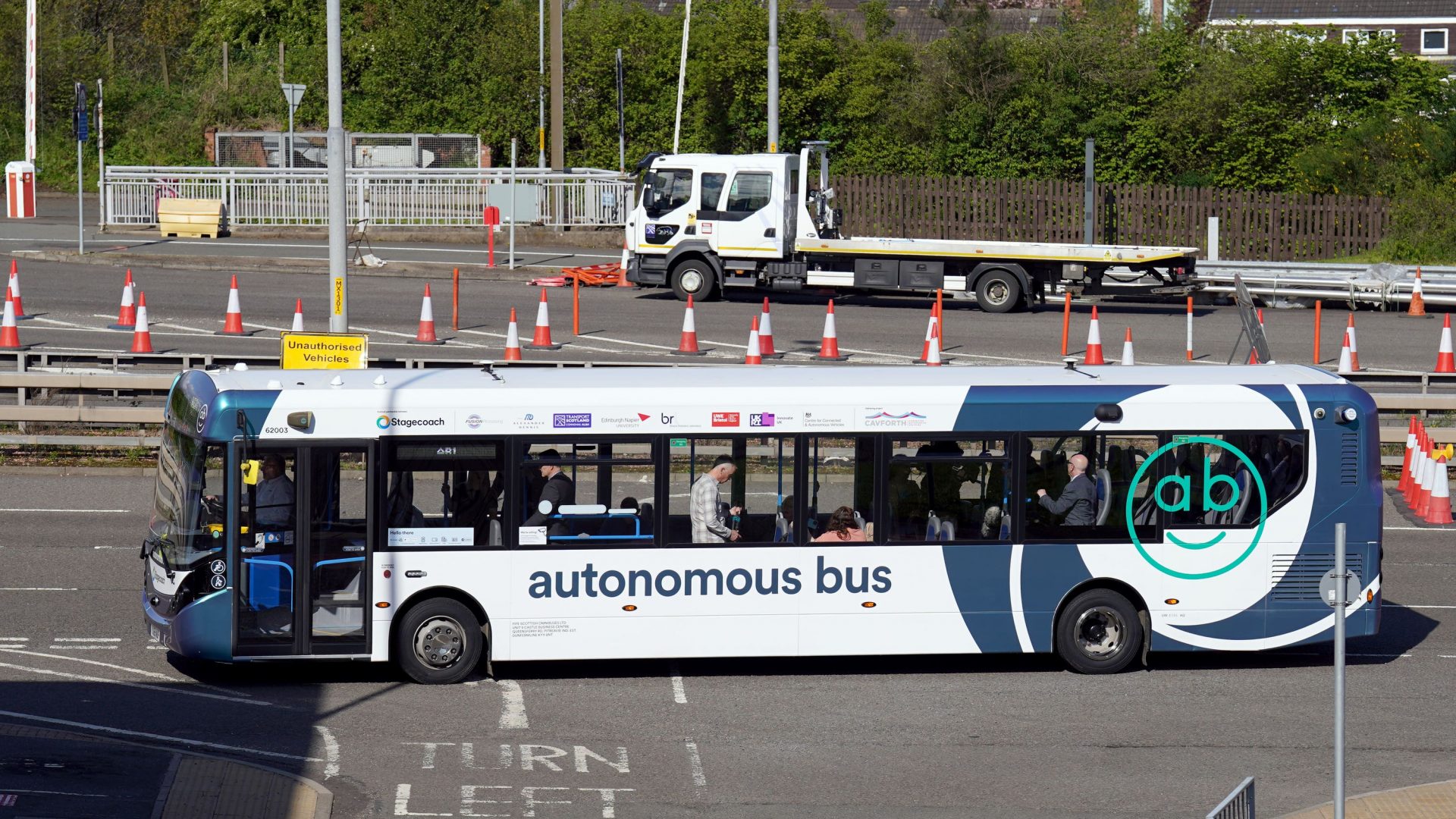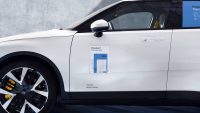New legislation for driverless vehicles being announced today will clear the way for buses, grocery deliveries and farm machinery to operate autonomously by the end of the decade.
According to The Times, today’s King’s Speech will set the wheels in motion for level four autonomous driving – driverless vehicles in controlled areas – by 2030.
No ‘safety driver’ is needed for them, which means items can be delivered without the need for a person, and drivers can be their own passengers. It’s the penultimate autonomous vehicle level.
At the moment, legislation allows for level two, which sees limited automation on roads but it has to be approved.
Level three is being tested, which sees vehicles carrying out most tasks but with a human override needed.
According to The Times, the bill will demand two-stage approval for new vehicles. It’ll keep the ‘type approval’ tests that are in place at the moment, adding another stage to allow self-driving for vehicles.
A source told the newspaper: ‘It will pave the way for the commercial use of autonomous technology, which will have huge benefits for consumers, reduce road deaths and help decarbonise transport.’
Human error is said to play a part in 85 per cent of recorded road accidents.
The prime minister is said to be keen for it to be pushed through quickly as part of his plan for the UK to be a world leader in AI, including its regulation.
Asda has started tests with autonomous vehicle software developer Wayve for ‘last-mile’ deliveries, although there is a safety driver. Ocado has as well and the new law will let them expand their tests.
According to today’s Times, experts reckon driverless vehicles for passengers will be seen a few years after they’ve come into widespread commercial use and would include ‘robotaxis’.
The Times quoted a spokesman for the all-party self-driving vehicles group as saying: ‘Industry wants to see the government introduce legislation in the King’s Speech to enable the commercial deployment of self-driving vehicles.
‘By 2035, this fast-growing sector will be worth at least £42bn to the UK alone, but we need to fix outdated regulation before we can truly compete in this £650bn global market.’
The speech marks the start of the next session of Parliament, in which the monarch sets out the legislative programme, and today’s will be the first King’s Speech since George VI opened Parliament in 1950.
The King, who has a long-standing interest in environmental matters, will also announce the government’s plan for a new law to mandate annual oil and gas licensing in the North Sea.
Pitched as necessary for energy security, it would require the North Sea Transition Authority to invite applications for new production licences on an annual basis.
However, it’s likely to spark criticism from climate campaigners and has already met with scepticism from Labour, which has committed to not allowing any more exploration licences in oil and gas if it takes power.
Pictured at top is the UK’s first autonomous bus service, which began taking paying passengers across the Forth Road Bridge in May on a trial basis until 2025. Image: Andrew Milligan/PA



































